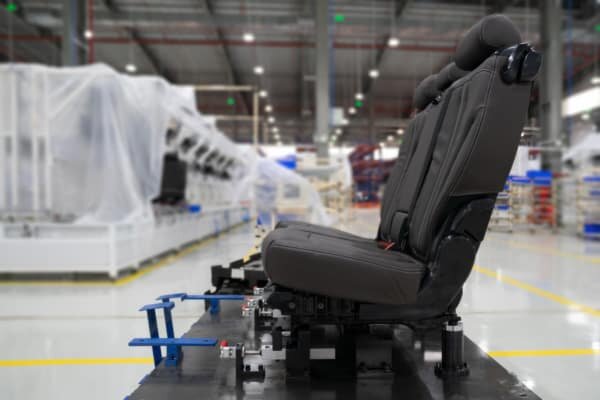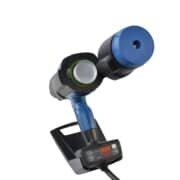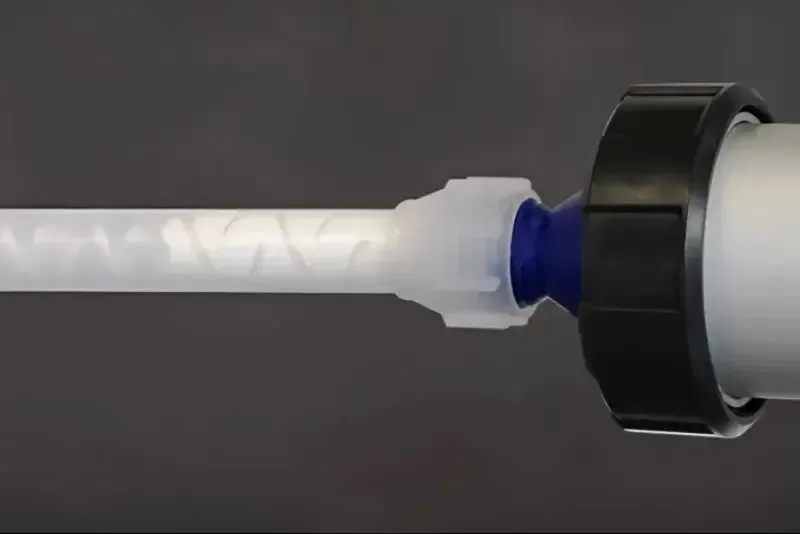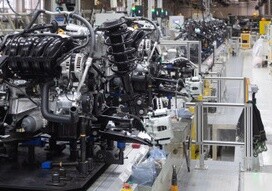Polyurethane (PUR) and polyolefin (POR) reactive hot melt adhesives

As a service, we offer free adhesives & sealants advice. We know it can be hard to find the best solution for your project. Please leave your details and we will get in touch within 1 day.

Increasing demand for PUR and POR reactive hot melt gluers for automotive adhesives
The need for reactive hot melt adhesives has never been greater, thanks to their extraordinary strength and versatility. Reactive hot melt gluers refer to polyurethane (PUR) hot melts and silane-modified polyolefin (POR) adhesives. Both reactive hot melt adhesive types are used in many industries, including the automotive industry, electronics, and construction. In this article, we focus on hot melt gluers for automotive industry assembly and repairs.
Two-stage curing in reactive adhesive technology
Reactive hot melt adhesives are also known as moisture-curing hot melts. This means that the hot melt gluer reaches its final cure as it reacts with moisture in the air and substrate. These adhesives have a two-stage curing profile which divides the process into physical and chemical curing.
- Physical setting: shortly after the hot melt gluer has been applied, the physical setting takes place. This allows the adhesive to reach a stage of hardness which allows for further processing and transport.
- Chemical crosslinking: the second stage of curing may take hours or even days, depending on adhesive type and moisture present in the environment. During chemical crosslinking, the hot melt gluer loses its thermoplastic properties and becomes thermoset, which means that high heat does not affect it.
The unique curing process makes PUR and POR hot melt adhesives a desired solution for many automotive adhesive applications. They can be used for example in making seats, gluing carpets, bonding foam-based materials, fixing cables, and attaching door sill protectors, as well as bonding emblems and gear knobs. These are not the only applications for reactive hot melt adhesives: the range of possibilities is nearly limitless. Contact us to discover whether PUR or POR hot melt is the solution for your automotive adhesive application.
Benefits of reactive hot melt adhesives as automobile glue

The reactive hot melt adhesives are not always the cheapest, but they are versatile in use and are a high-quality automobile glue, even on substrates that have been considered “un-glueable”. The automotive adhesives are rather light, which contributes to vehicle weight reduction. They also bond lightweight materials that are crucial in lighter weight vehicles. The application of a hot melt gluer is also rather easy, as long as the right type of hot melt dispenser is used.
The two types, polyurethane and silane-modified polyolefin-based systems, both have their own unique advantages.
What makes polyurethane hot melt adhesives special
Polyurethane hot melt adhesives have a combination of benefits which make a very unique adhesive. The beneficial hot melt gluer properties include the following.
- Heat resistance: crucial for both finished products and further processing, PUR hot melts are heat-resistant once they have reached the final cure. Heat resistance is not a common property for hot melt adhesives.
- Low-temperature flexibility: common for polyurethane adhesives, reactive hot melts also remain flexible in low temperatures. Depending on the application, this can be a great advantage.
- Extraordinary strength: PUR hot melt forms the strongest bonds out of all hot melt adhesives.
- Excellent adhesion: PUR hot melt adhesives adhere well to a wide range of substrates including lightweight materials that are increasingly used in vehicle assembly.
- Solvent resistance: polyurethane hot melt adhesives are known for their excellent solvent resistance which opens up more application possibilities.
Share your specifications with us and find out whether PUR hot melt solves your automotive adhesive problems.
When to use POR hot melt adhesives
PUR hot melt adhesives are versatile and have unique characteristics which fit many applications. However, some applications that require reactive hot melt adhesives cannot be realized with PUR: this is when POR hot melt comes into focus. The silane-modified polyolefin-based adhesives share many advantages with polyurethane, but they also adhere to surfaces that are a challenge for PUR hot melt. Untreated, non-polar surfaces such as polypropylene (PP), common in vehicle assembly, can be easily bonded with POR adhesives.
Additionally, even though POR hot melts do not reach the strength of PUR, they form very durable bonds that are more environmentally friendly than those made with other reactive hot melt adhesives. Typical for modified silane based adhesives, POR hot melts do not contain isocyanates. This also means that a hot melt gluer is not labeled as a hazardous good. In some cases, this may be the deciding factor when choosing hot melt automotive adhesives.
Looking for POR or PUR hot melt adhesives, and matching application equipment?
In case you need any assistance in deciding about reactive hot melt adhesives or are looking for hot melt gluer systems for specific applications, contact us!
We value services like:
- Laboratory testing of adhesives and equipment
- On-site advice and fast product delivery
- Support in case of malfunction and repair services by well trained technicians
- Support in further development towards better bonding
- Multilingual service
Discover more solutions for transport & vehicles

What solution are you looking for?
We are specialized in the transportation and automotive industry. Need the best products or advice? Then please leave your details and we will get in touch.





